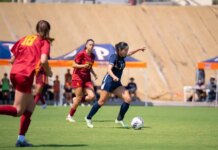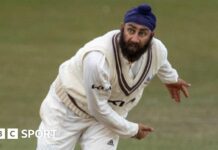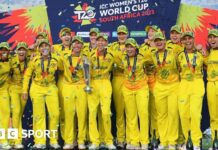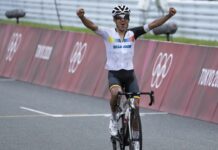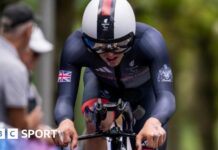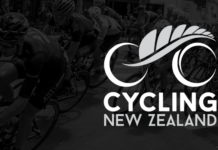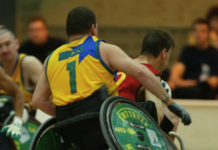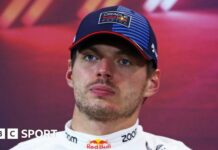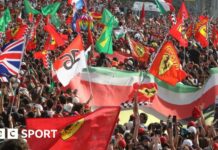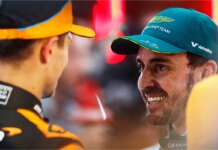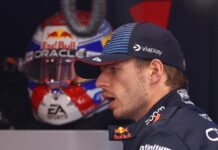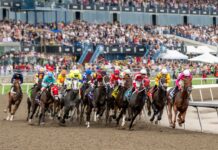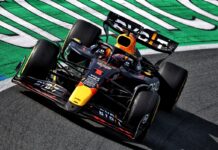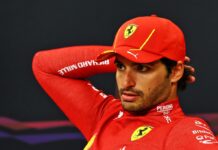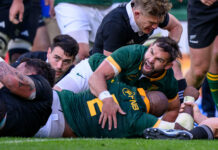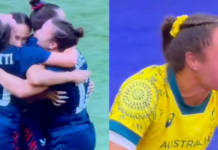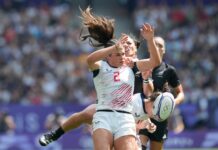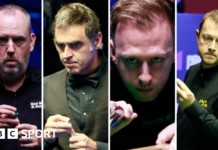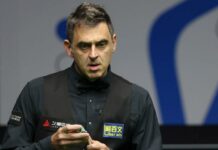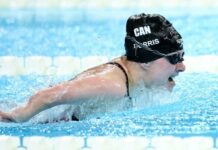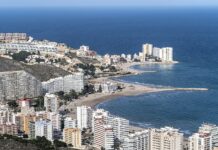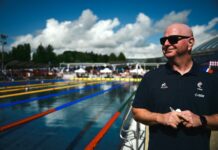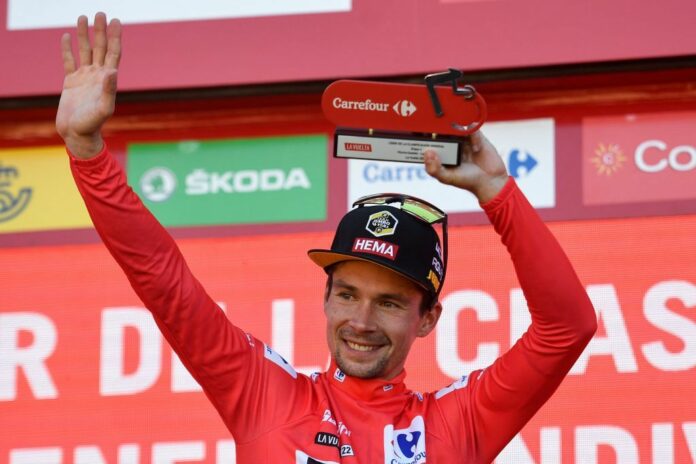While this year’s Giro d’Italia was a foregone conclusion and the Tour de France the preserve of an elite few, the Vuelta a España promises to be a more open affair. That is, of course, entirely in keeping with the tenor of the season’s third Grand Tour, which has a habit of producing surprising surprises and even the occasional shock winner.
Nobody expected Juan José Cobo or Chris Froome to fight it out for red in 2011, after all, while Chris Horner’s victory two years later was a bolt from the blue. In 2015, Tom Dumoulin announced himself as a Grand Tour rider by almost winning the race, and Sepp Kuss’ overall victory twelve months ago brought an unexpected dash of drama to Jumbo-Visma’s procession.
In the absence of Tadej Pogačar, Jonas Vingegaard and Remco Evenepoel, who operated on another plane to the rest in July, there is something of a power vacuum at this Vuelta, but that only makes the race more intriguing.
At the Giro, all of the GC men bar Pogačar knew they were racing for second place. At the Tour, the bulk of the GC riders knew they were competing for fourth. At the Vuelta, one senses that ambitions are being quietly revised upwards across the peloton.
Three-time winner Primož Roglič is a logical favourite, but much depends on his recovery from the injury that forced him out of the Tour. UAE Team Emirates are chasing a clean sweep of Grand Tours but even though they should have the strongest team in Spain, the absence of Pogačar gives everybody else a puncher’s chance.
The hierarchy is unclear and, in truth, the roll call of podium contenders could be twenty riders long. Men like Antonio Tiberi (Bahrain Victorious), Eddie Dunbar (Jayco-Alula) and Tao Geoghegan Hart (Lidl-Trek) haven’t made our short list, but they, too, will set out from Lisbon mindful of the possibilities ahead. The script of this Vuelta is unwritten.
Primož Roglič (Red Bull-Bora-Hansgrohe)
Primož Roglič is looking to bounce back at the Vuelta once again (Image credit: Getty Images)
The Vuelta, Eusebio Unzué once suggested, was something of a re-sit for men who fell short – or simply fell off – during the big examination in July. Alex Zülle did it, and so did Abraham Olano, Alberto Contador and Nairo Quintana. But nobody has done it quite like Primož Roglič, whose three Vuelta victories to date have all served as compensation for a weighty disappointment earlier in the year.
The latest race content, interviews, features, reviews and expert buying guides, direct to your inbox!
In 2019, Roglič had squandered a winning hand at an imminently winnable Giro d’Italia, but he allayed doubts about his aptitude for Grand Tour racing by landing the Vuelta. A year later, he bounced back from the trauma of losing the Tour de France at the last to claim the pandemic-delayed Vuelta. In 2021, Roglič lifted himself from the canvas all over again, this time after crashing out of the Tour, to claim his most dominant Vuelta triumph.
Over the past two years, Roglič hasn’t quite managed to grasp the consolation prize, but the principle has remained the same. After crashing out of the 2022 Tour, another fall ended his Vuelta challenge in the final week. Last year, after being omitted from Visma’s Tour squad altogether, his path to Vuelta victory was complicated by team politics.
When Roglič endured his latest Tour heartbreak in Villeneuve-sur-Lot last month, his schedule seemed to write itself, even if Red Bull-Bora-Hansgrohe delayed the inevitable confirmation as they waited to make sure their rider had fully recovered from his injuries. The announcement finally came this week: Roglič will ride the Vuelta, flanked by Aleksandr Vlasov.
His team is different this year, but the circumstances are familiar. In a race punctuated by so much uncertainty, Roglič is the closest thing to a guarantee, though Rolf Aldag has warned that everything will depend on how well he has recovered from the injuries sustained last month. The opening week will reveal more.
Sepp Kuss (Visma-Lease a Bike)
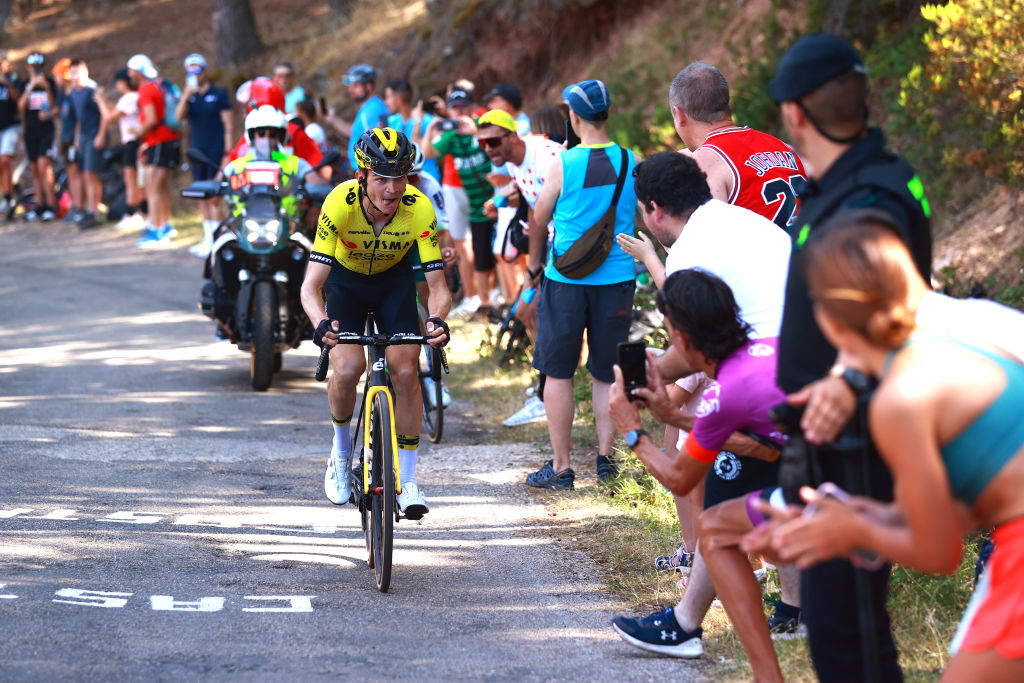
Sepp Kuss’ overall win at the Vuelta a Burgos underlined his form (Image credit: Getty Images)
‘GC Kuss’ faces into the difficult second album, but after a trying 2024 campaign to date, there were some promising omens from the Vuelta a Burgos. Sepp Kuss’ overall win there was only the third general classification victory of his career – the others were last year’s Vuelta and the 2018 Tour of Utah – and his display on the key climb to Lagunas de Neila will offer some reassurance after an indifferent season to this point.
Kuss was due to ride the Tour in the service of Jonas Vingegaard, but a COVID-19 infection in June saw him removed from the Visma-Lease a Bike squad. Missing out on the Tour would ordinarily be a disappointment, but it also offered Kuss the chance of a reset. He will be one of the few overall contenders at this Vuelta without a Grand Tour already in his legs, and that freshness might stand to him here.
Then again, Kuss raced last year’s Vuelta after heavy shifts at the Giro and Tour, and it did him little harm. The lie of the land was very different, mind, with Vingegaard and Roglič setting out as Visma’s stated leaders before Kuss’ raid at Javalambre upset the hierarchy.
This time out, Cian Uijtdebroeks is the other man with GC ambitions in the line-up, while Wout van Aert will enjoy a free role as he searches for stage wins and, above all, seeks form ahead of the World Championships.
Adam Yates (UAE Team Emirates)
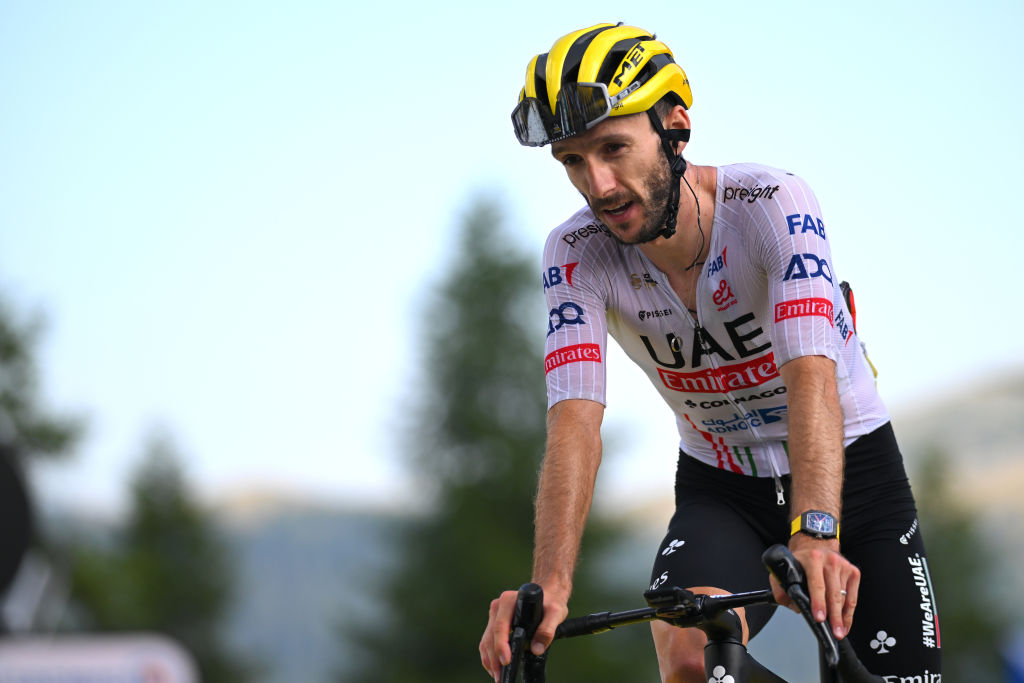
After working for Tadej Pogačar in July, Adam Yates goes for red here (Image credit: Getty Images)
Adam Yates will be a dangerous foe at the Vuelta. Indeed, even when riding as a super domestique for Tadej Pogačar, the Bury man has developed a penchant for solid GC performances. After placing third overall on last year’s Tour, Yates helped himself to sixth place this time around despite being deployed a little earlier on the finishing climbs.
At the Vuelta, Yates will be unfettered by domestique duties, at least at the start, when he sets off as UAE Team Emirates co-leader alongside João Almeida. That partnership paid dividends at the Tour de Suisse, where they helped themselves to the top two places overall and four stage wins, and there is little reason to believe the pair won’t strike a decent working agreement on this Vuelta to boot.
Although Yates impressed in weeklong stage races across his spells at GreenEdge and Ineos, he had never looked a likely Grand Tour winner, with fourth places at the 2016 Tour and 2021 Vuelta his best finishes after three weeks.
He has enjoyed a remarkable resurgence since joining UAE ahead of the 2023 season, however, and these days there seem to be few limits on what he can achieve. In a race without Pogačar, Vingegaard and Evenepoel, he might even wear red into Madrid.
João Almeida (UAE Team Emirates)
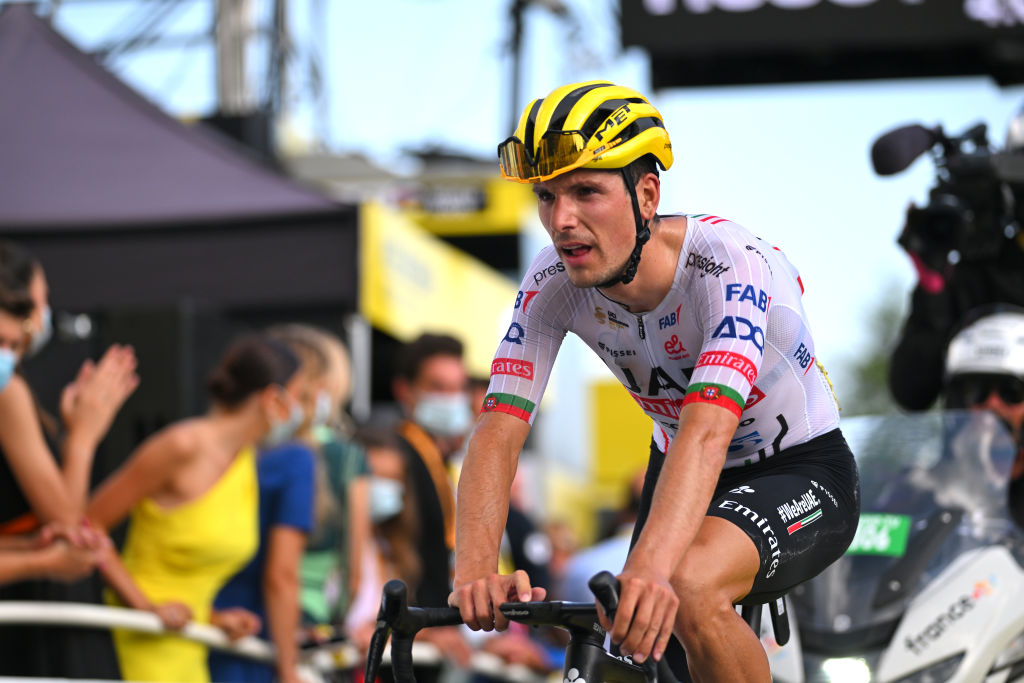
João Almeida will expect a fast start at home in Portugal (Image credit: Getty Images)
João Almeida is the other half of UAE’s leadership pairing and the Portuguese rider, like Yates, will realise that this Vuelta presents a genuine opportunity to inscribe a Grand Tour on his palmarès. The Portuguese rider has shown his aptitude for the discipline from the outset, leading the 2020 Giro for over two weeks as a neo-professional before finishing a fine fourth overall at Milan.
He has often been tasked with working for others in Grand Tours since, though Almeida has tended to show his quality when given the opportunity. He finished on the podium of last year’s Giro and might very well have done the same in 2022 had a COVID-19 infection not ended his race prematurely. He arrives at this Vuelta, meanwhile, buoyed by a fine Tour debut, where he worked diligently for Pogačar while helping himself to fourth overall.
This Vuelta is of special resonance for Almeida given that the race starts in his native Portugal and the 12km time trial in Lisbon gives him an early opportunity to stake a claim to outright team leadership. The UAE squad, meanwhile, looks to be the deepest one in the race, with Brandon McNulty, Jay Vine and young talent Isaac del Toro all featuring. Indeed, Del Toro’s Grand Tour debut will be of considerable interest, given that it also be an audition for the Mexican’s own future GC aspirations.
Carlos Rodríguez (Ineos Grenadiers)
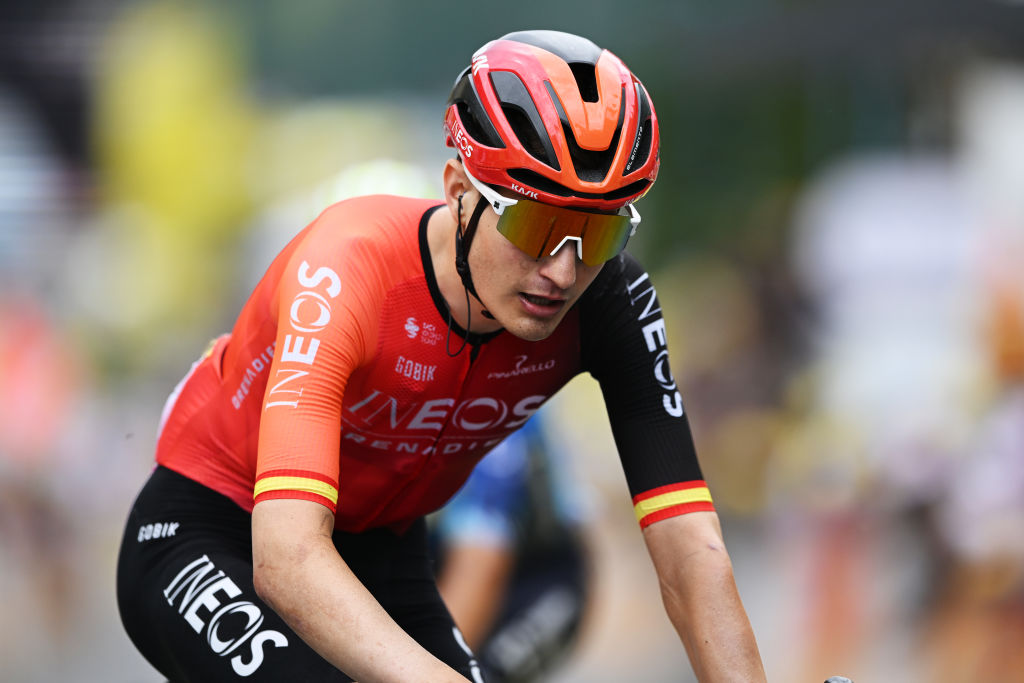
Carlos Rodriguez shares leadership with Thymen Arensman (Image credit: Getty Images)
Two years ago, Carlos Rodríguez enjoyed a sparkling Vuelta debut, placing seventh overall, even if his display was ultimately overshadowed by that of his contemporary Juan Ayuso (UAE Team Emirates), who became the first teenager to make the podium of a Grand Tour since 1904. This time out, with Ayuso an absentee, Rodríguez will be the subject of rather more home attention.
After placing fifth overall and winning a stage at last year’s Tour, Rodríguez endured a more difficult time of it this past July. Hampered by illness, he eventually reached Nice a distant seventh overall, but he was still the best thing about Ineos’ rather nondescript Tour. He will hope for better at the Vuelta, though it will be a considerable test of his mettle given that this will be the first time he has raced two Grand Tours in the same season.
With that in mind, Rodríguez will be flanked by co-leader Thymen Arensman, who has had more of a tailored build-up to this Vuelta after placing sixth overall at the Giro in May.
The Dutchman previously placed sixth on the 2022 Vuelta and he will be aiming for better here, but it will be interesting to see how he dovetails his efforts with Rodríguez. He didn’t always appear to be operating from the same playbook as Geraint Thomas at the Giro, even if it didn’t prevent the Welshman from holding firm in third overall.
Richard Carapaz (EF Education-EasyPost)
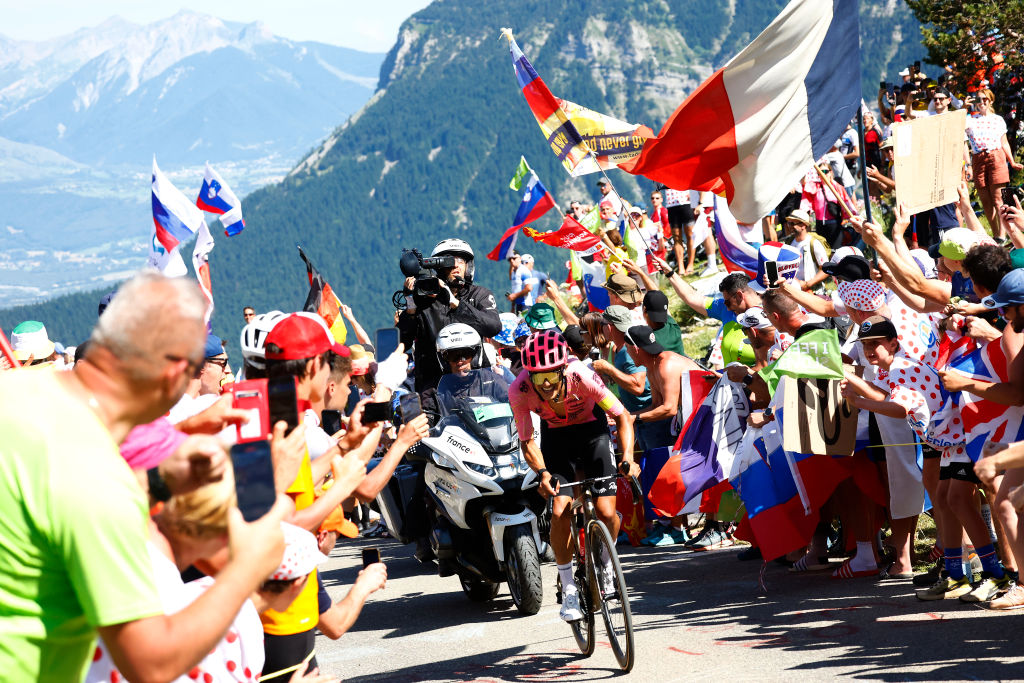
Richard Carapaz climbed to glory at Superdévoluy at the Tour de France (Image credit: Getty Images)
It’s been a while since Richard Carapaz has challenged for the general classification at a Grand Tour and that allows the Ecuadorian to set out from Lisbon slightly under the radar, a position from which he has done considerable damage in years past, most notably when winning the 2019 Giro ahead of Roglič and Vincenzo Nibali.
A year later, Carapaz almost snatched the Vuelta from Roglič at the last, while in 2021, he was the one bright spot in a torrid Tour for Ineos, taking third overall. On his last real tilt at a Grand Tour, meanwhile, Carapaz placed second on the 2022 Giro after leading the race into the final weekend. At that year’s Vuelta, Carapaz was deployed primarily in a supporting role by Ineos, but he still helped himself to a hat-trick of stage wins. He is something of a guarantee in a three-week race, in other words, so long as his luck holds.
Luck, of course, has been a thorny issue during Carapaz’s time at EF. He crashed out of the 2023 Tour after crashing heavily on the opening day, while his 2024 challenge was compromised by another crash at the Tour de Suisse. That led to a quick revision of expectations, with Carapaz assigned something of a free role. After snatching a day in yellow early on, he proceeded to win at Superdévoluy and take the king of the mountains title. This Vuelta, however, will reveal much about Carapaz’s future prospects as a GC contender.
Mikel Landa (Soudal-QuickStep)
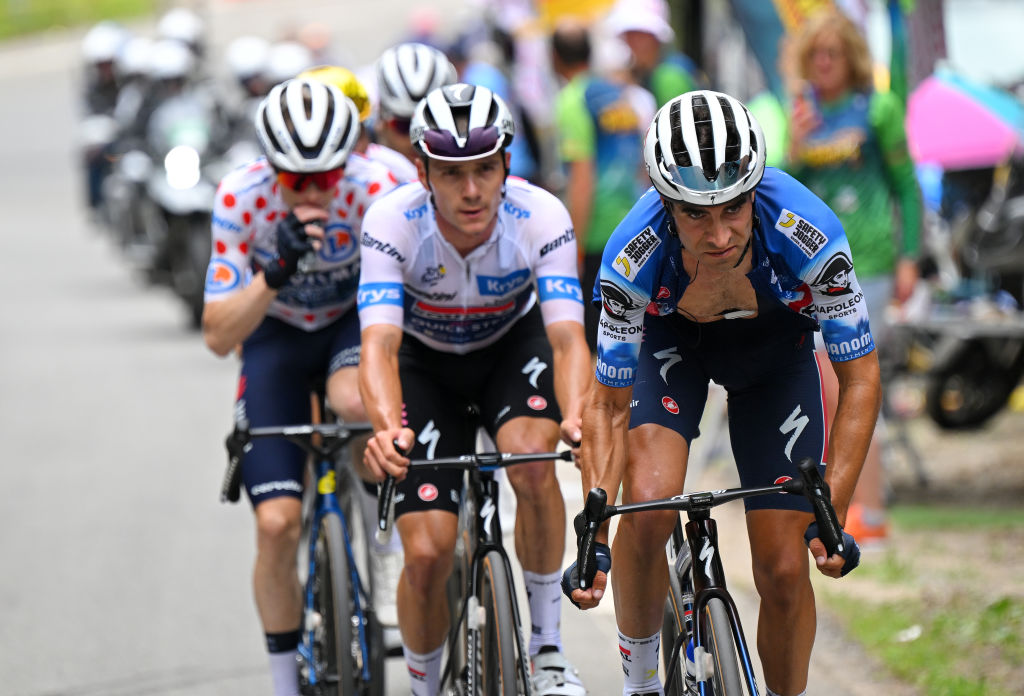
“Landismo isn’t going to change,” Landa said early in the Tour, and he was as good as his word. (Image credit: Getty Images)
The outsized performances of the men on the Tour podium understandably garnered most of the attention, but Mikel Landa quietly put together one of the best Grand Tour displays of his career in July. Although his primary role was to shepherd Remco Evenepoel through the mountains – not that the Belgian looked in need of too much guidance – Landa also helped himself to fifth place overall in Paris after delivering a most consistent body of work in the high mountains.
When Landa swapped Bahrain for Soudal-QuickStep last winter, the quid pro quo was clear. He would ride for Evenepoel in July before being given his freedom at the Vuelta. It will be fascinating to see what the Basque can achieve here, not least because his record in the Spanish race has been a surprisingly underwhelming one. His lone stage victory came on the Andorran epic in 2015, while his best overall finish was last year’s fifth place.
Landa’s best Grand Tour displays have tended to come in France and Italy – and often while riding in the service of others. But then again, that’s all part of the contradictory mystique of one of the peloton’s most compelling figures. Just about anything could happen.
“Landismo isn’t going to change,” Landa told El Pais during his shift on Evenepoel’s behalf at the Tour. “Maybe I could have won more races, been more successful, but I wouldn’t change it. I wouldn’t change it.”
Ben O’Connor (Decathlon-AG2R)
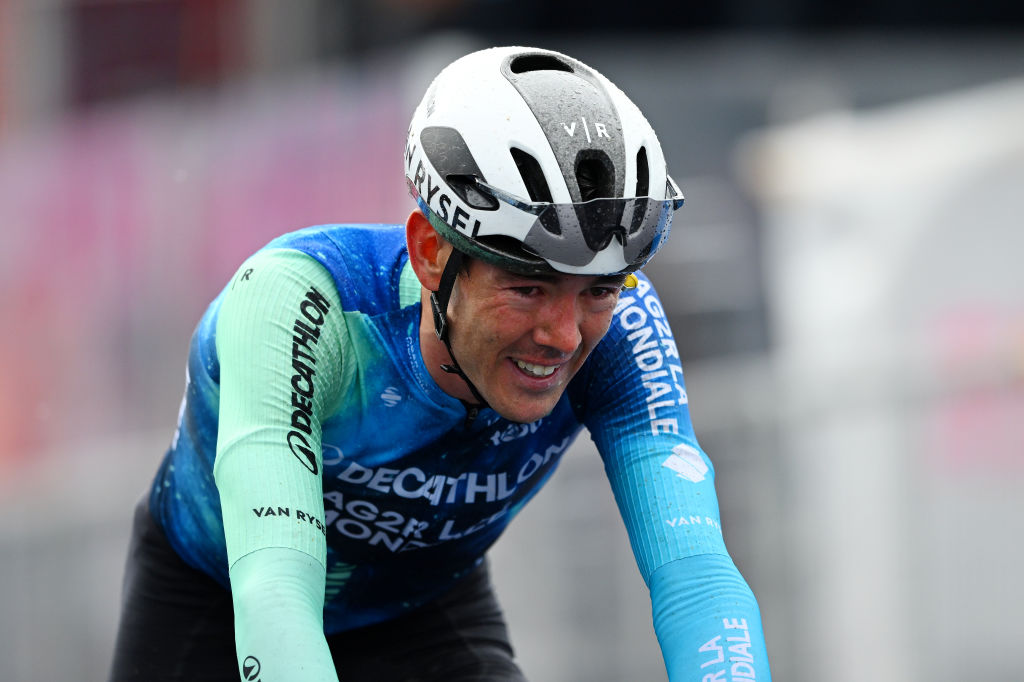
Ben O’Connor en route to fourth overall at the Giro d’Italia (Image credit: Getty Images)
At the Giro in May, Ben O’Connor placed fourth overall, matching his best-ever Grand Tour finish, but the Australian might have come away nursing some mild regrets given how illness tempered his podium challenge in the final week. No matter, the race gave O’Connor precisely the kind of hard reset he needed after unhappy experiences at the Tour in 2022 and 2023.
A reset of a different kind will come in 2025 when O’Connor moves to Jayco-AlUla, but his imminent departure mercifully hasn’t discouraged Decathlon-AG2R from dispatching him to the Vuelta. And with good reason. After an all-action opening half of the season, Vincent Lavenu’s squad seemed to run out of momentum by the time the Tour came around, but O’Connor’s presence immediately elevates their Vuelta prospects.
O’Connor has been strikingly consistent all season – second at the UAE Tour and Tour of the Alps, fifth at Tirreno-Adriatico – and he will expect to continue in that fashion at the Vuelta, where he placed seventh overall two years ago.
The 28-year-old’s stated aim is a stage win and a top-five finish, but he might be quietly nurturing loftier ambitions. He was, after all, the one man to dare to follow a full-blown Pogačar attack at the Giro. It proved a harsh lesson, but it was also an indication of his inherent belief. He won’t be daunted here.
Enric Mas (Movistar)
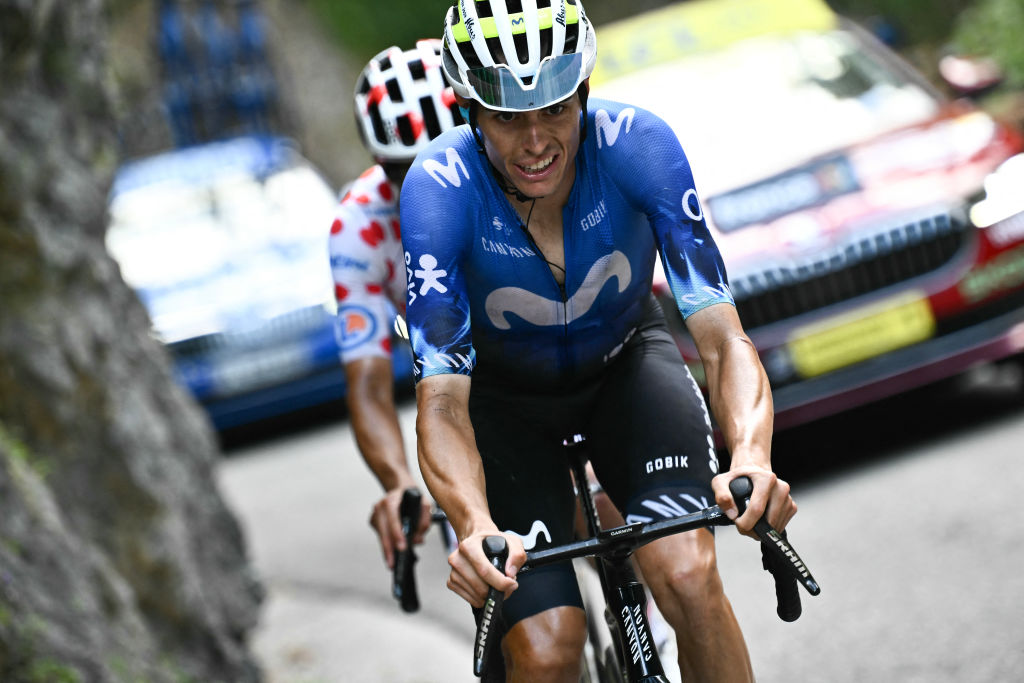
Enric Mas has been second three times at the Vuelta (Image credit: Getty Images)
It’s easy to forget that Enric Mas has finished second no fewer than three times at the Vuelta. The trouble for the Mallorcan is that every step forward in his career seems to be followed by three steps back. Second overall behind Simon Yates in 2018 seemed to mark Mas out as the future of Spanish cycling, but he has spent the years since never quite living up to that potential, despite placing second again in 2021 and 2022.
Indeed, that 2022 performance was doomed to be overshadowed by Ayuso’s youthful podium finish, and Mas’ travails over the past two seasons have done little to convince the Spanish cycling public that he is the man to end a Vuelta drought that now stretches back a decade to Alberto Contador’s final overall win in 2014
Mas arrives at this Vuelta under considerable pressure after an underwhelming season. It was one thing to be solid though wholly unspectacular through the Spring; it was something else altogether to implode at the Tour. The 29-year-old was never in the GC race in July, finishing 19th in Nice, and his repeated attempts to salvage a stage win from the break also came up short.
As Unzué would have it, the Vuelta offers Mas a chance to resit that July exam, and he will have Nairo Quintana and Oier Lazkano for company in a Movistar squad in dire need of a big result on home roads. Mas does have the useful habit of digging out solid rides at the Vuelta right just when he’s being written off, but he’ll have his work cut out to make the podium here.
Mattias Skjelmose (Lidl-Trek)
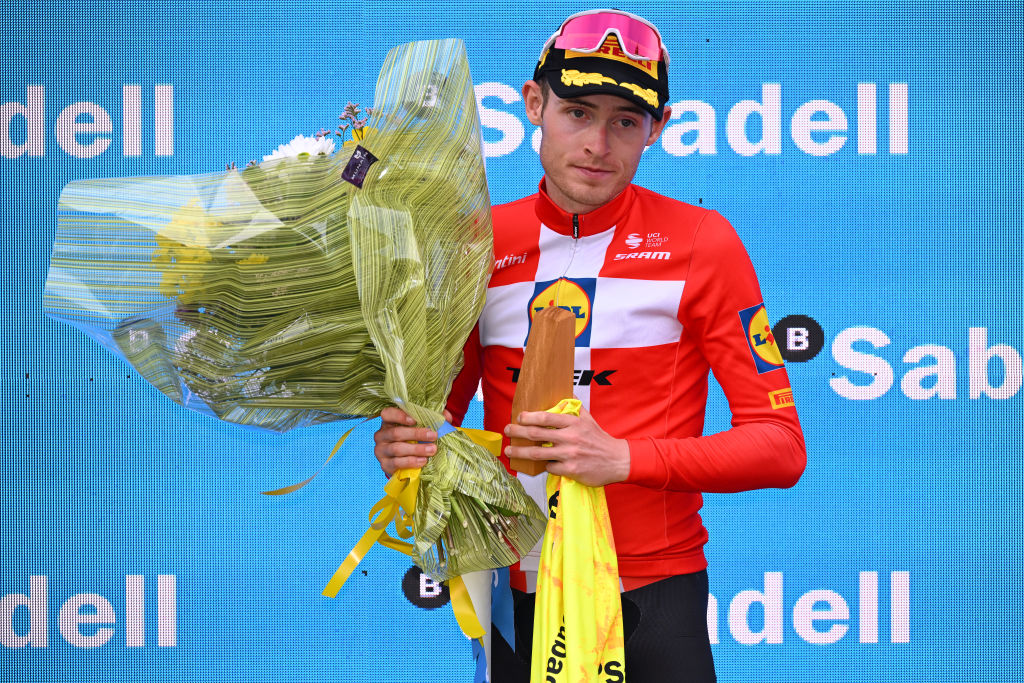
There are other GC contenders with better resumes, but Lidl-Trek’s faith in Mattias Skjelmose makes him an intriguing presence (Image credit: Getty Images)
There are plenty of other riders with greater Grand Tour credentials and experience who are equally worthy of a place in this list – Eddie Dunbar and Antonio Tiberi spring to mind – but Lidl-Trek’s decision to hold Mattias Skjelmose back for the Vuelta makes him one of the most intriguing contenders to watch in this year’s race.
The Danish climber has shown his mettle in weeklong stage races and punchy one-day events over the past two seasons, but he has yet to prove himself over three weeks.
Lidl-Trek, however, were not unduly deterred by Skjelmose’s subdued Tour debut last year and there have already been murmurings about deploying him as a leader next July. With that in mind, this Vuelta is a key stage in Skjelmose’s development. Still only 23, Skjelmose has impressed at the top level this year – third at the Tour de Suisse and Itzulia Basque Country, fourth at Paris-Nice – but the Vuelta will be a different kind of test.
Skjelmose will be flanked in a strong Lidl-Trek team by Giulio Ciccone, who placed 11th at the Tour, and, above all, by Tao Geoghegan Hart, who missed the Tour due to illness and injury. Geoghegan Hart is still feeling his way back after his severe crash on the 2023 Giro, but there have been some promising moments this season, notably at the Tour de Romandie. He will hope for more at the Vuelta.
Source link : https://www.cyclingnews.com/features/vuelta-a-espana-2024-analysing-the-contenders/
Author :
Publish date : 2024-08-14 18:39:22
Copyright for syndicated content belongs to the linked Source.




